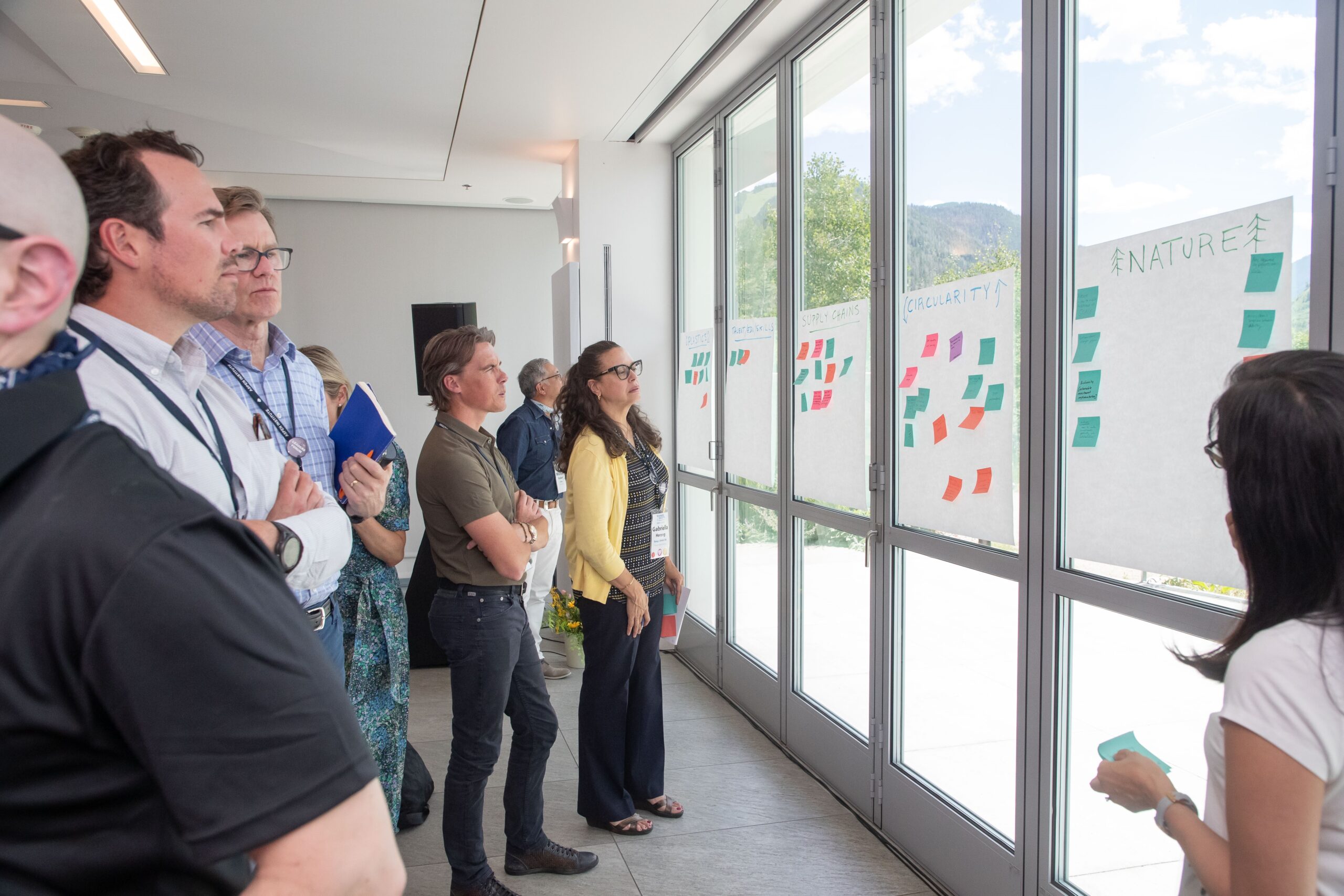Three Takeaways from the Business & Society Summit


“The headlines are dominated by a world in trouble… But amidst the turmoil, another story is being written. And its implications will be profound. Throughout history, energy has shaped the destiny of humankind – from mastering fire, to harnessing steam, to splitting the atom. Fossil fuels are running out of road. The sun is rising on a clean energy age. Just follow the money.“
— António Guterres, United Nations Secretary-General (July 22, 2025)
On July 8th, we gathered in Colorado for the 4th annual Aspen Business & Society Summit, to hit the pause button, turn down the noise, engage in conversation—and to learn from one another what is needed, and possible, now.
Conversations at the Summit covered the waterfront of pressing issues, from responsible use of technology to investing in nature, to the future of oil and gas and the need for change in boardrooms. Examples of business action and investment illustrated paths to progress and what is possible when leaders are clear about the current opportunities for growth.
This moment is complex but also clarifying. Here are three things that are clearer to me from engaging in dialogue with participants from 50+ global enterprises, 30+ long-term investors, and those who teach, advise, and hold corporations to account:
One, business has both the capabilities and the motivation to move with greater urgency.
Business executives across industries demonstrate the capacity and capabilities for driving innovation and collaboration. Collaboration and investment in innovation and execution are needed to address systemic problems and create long-term value.
I had the opportunity to interview Dave Regnery, Chairman and CEO of Trane Technologies, a NYSE listed company described as a “pure-play climate company.” Trane specializes in heating, cooling, and refrigeration systems, and jumped forty-five places to #20 on TIME’s most recent list of the World’s Most Sustainable Companies.
Measured by the stock price and investor expectations, and in spite of the politics surrounding climate, Trane is flourishing.
What can we learn from B2B companies like Trane that operate with their own challenges but enjoy longer time frames than consumer brands?
And what did the UN Global Compact’s Sanda Ojiambo, who stewards the world’s largest business network, offer up about the importance of local and national peer networks to pick up the pace of change?
In his recent report and special address at the United-Nations, Secretary-General António Guterres captured the mood on the mountain: “This is our moment of opportunity. We must seize it.” There is no such thing as standing still when the opportunities are so compelling. And as Guterres said, “This is not just a shift in power. This is a shift in possibility.”
Two, policy is essential for driving business investment and commitment, but market signals are also meaningful. They may matter even more at this moment.
A Summit participant described the impact of a ten-year purchase agreement from a major brand that holds the producer to clear standards around soil and water regeneration. An NGO targets a major consumer brand, that in turn negotiates standards for producers in the supply chain, bringing some into alignment and cutting off those who fall below the bar.
Long-term investors also matter. They have the staying power to expect steady improvements in all aspects of business, including the well-being of employees, culture, and the wise use of data, AI, and other technology.
When signals from the government are unclear, market signals matter even more. Demand signals move through the supply chain and through capital markets. They also influence internal priorities, as the enterprise deploys the balance sheet to stress-test capital expenditures and future-proof strategic interests.
Three, we need stand-up leaders.
The need for courage amid the chaos, constant disruptions, and threats underscored every conversation.
It’s easier to stand up when company values and market signals are aligned.
The public isn’t looking for corporations to weigh in on every social issue that divides us. It does expect business leaders to speak more clearly about and invest in the health of the systems on which we all depend. Systems like the rule of law. Conserving and protecting natural resources. Diversity in the workplace in order to ensure productivity and opportunity. Investment in fair wages, good jobs, and basic financial security.
The vision of a world in which everyone profits from business success is attainable. The business rationale for sticking with commitments that improve employee productivity, strengthen company resilience, and support healthier communities is self-evident.
Stories of catalytic decisions aligned with corporate purpose and with promising ROI illuminated discussions throughout the Summit.
Such actions build the case for maintaining long-term commitments. They highlight new opportunities and raise compelling questions about the design of boards for long-term value creation.
And critically, they raise the bar for executives.
This blog post was originally published on LinkedIn. Follow Judy Samuelson for more insights on business and society.

Student loans often follow borrowers for years, sometimes decades. Even people who fully understand how much they borrowed can feel...

It was a busy week for RIA aggregators. There were a few large moves, including $235 billion multi-family office Cresset...

Blog Posts Archives UnfavoriteFavorite February 27, 2026 Weave: The Social Fabric Project Subscribe to Weave’s Newsletter This story was originally...